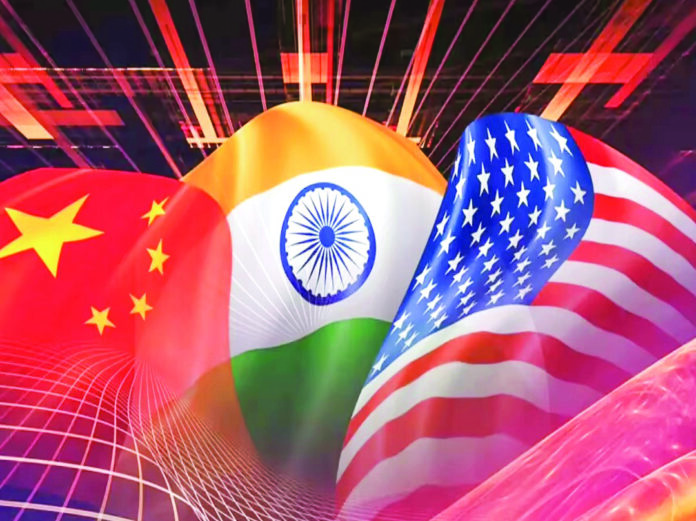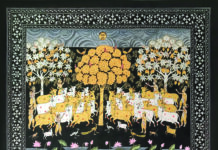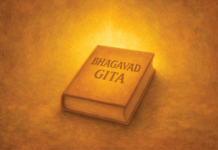India is about emotions and we have always taken pride in it–our culture, our civilizational pedigree, our history and our nationalism is all about emotions. While progressing let’s not add irrationality to it!
Let’s accept we are the largest demography experiencing the biggest ever socio-economic transition the world has ever witnessed before. Our society’s transition to development and affluence is marked by two larger events: US-China competition and our historic rise to be the third largest economy behind them.
Our economic rise will also be marked by a swelling urban population that’ll grow to $640 million by 2035. Five states–Tamil Nadu, Gujrat, Maharashtra, Karnataka and Punjab will see more than 50 percent of their populations residing in cities. The urbanization of the world’s largest rural population will generate unique opportunities and challenges whose impact will percolate deep down to institutions, families and individuals.
The US-China competition and the economic rise of India will be like an underlying thread to the global march to the mid-century. India will witness the stiff US-China competition not only more closely because of being third on the economic podium behind the competing leaders—it’ll also experience it more intensely than the rest of the world because its rise will impact both those above and those below it. It’ll thus be constantly challenged and would need to constantly assert itself while maintaining its focus and leadership.
History stands with ample evidence about how socio-economic changes impact societies. This fundamentally means an impact on the family systems, community culture and nature of interpersonal equations. It also implies added stress on all aspects of the public health care system including the mental health care frameworks that deeply reflect in the work and employment ecosystems; markets and their resilience; success of policies and growth of democratic institutions and hence national security.
The life skills needed in today’s job markets, board rooms, corporate ecosystems are far more dexterous than they were in our socialism-propelled public enterprises of the dirigiste era; than what ran our government offices and bureaucracy all this while. Chinese-communism manipulated humanity exists in an extremely complex and ideology polarized world and polarized economic paradigms. It requires India to cultivate a different and new rationality.
Has India’s collective consciousness thought as a nation on what faces it towards its journey to Viksit (Developed) Bharat by 2047?
Let’s identify our emotional vulnerabilities amidst this massive economic and geopolitically transiting world and cultivate leadership and rationality. Here are a few recommendations:
1: Let’s start with the culture of the Viksit Bharat Value System. Let us direct our educational institutions, our institutions at state and national level to identify a brief and inclusive list of individual and collective values that we need to cultivate towards our march to the mid-century. Let’s make a national “Psycho-Social Care” framework the basis of it. That way we would know how to emotionally take setbacks, find solutions to crises unheard of before, assert and continue to walk our paths–led by our own value systems.
Let’s include these values in our work environment systems—corporate, unorganized and gig economy aggregates. Let’s integrate them with our business goals and annual job appraisals and productivity analysis.
Social resilience built by measured and integrated value systems can be the best antidote to subversion and the most potent counter to narrative and ideological warfare.
2: Let’s look at the emotional makeup of our unorganized sector that employs over 85 percent of our labour. This population that still struggles for social security and proper work environment will be the cradle for India’s next middle class. It’ll also be the provider for India’s burgeoning formal economy while it continues to be the shock absorber for all calamities. Let’s understand that the well being of this huge, resilient sector is an issue of national security.
3: Let’s emphasize on a leadership value system framework for our industry leaders, lawmakers and bureaucrats leading our economic rise from the forefront. Let’s incorporate it into the political leadership institutions as well. Let’s play upon the need of training for India’s political leadership as much as the training of bureaucracy and corporate leadership.
4: Let’s include the provision of up-to-date life skill education into our fundamental right for education. Life skills education is already a part of many curriculums for adult students around the country. Let’s make it a compulsion—designing and implementing different modules for different age groups.
And above all, let us try to maintain a personal growth-book where we identify and record what skills, attitudes, values, education and training a Viksit Bharat calls from each of us. Let us reflect upon how our personal goals get impacted by the collective transition we are facing and how we can healthy navigate through it.
Venus Upadhayaya is a Senior Indian Journalist and a MOFA 2025 Taiwan Fellow.








